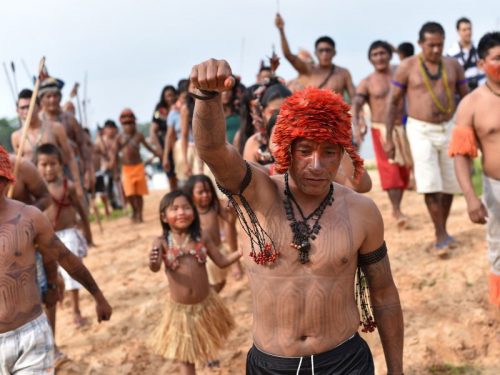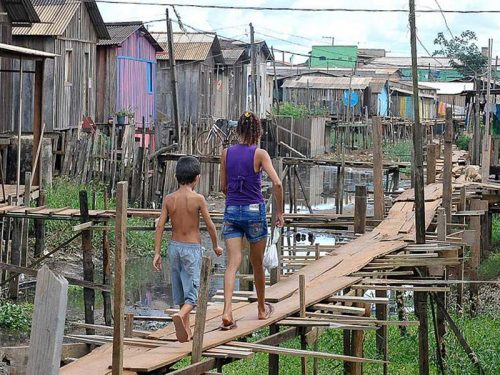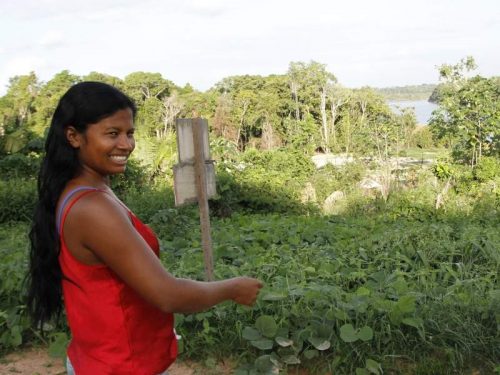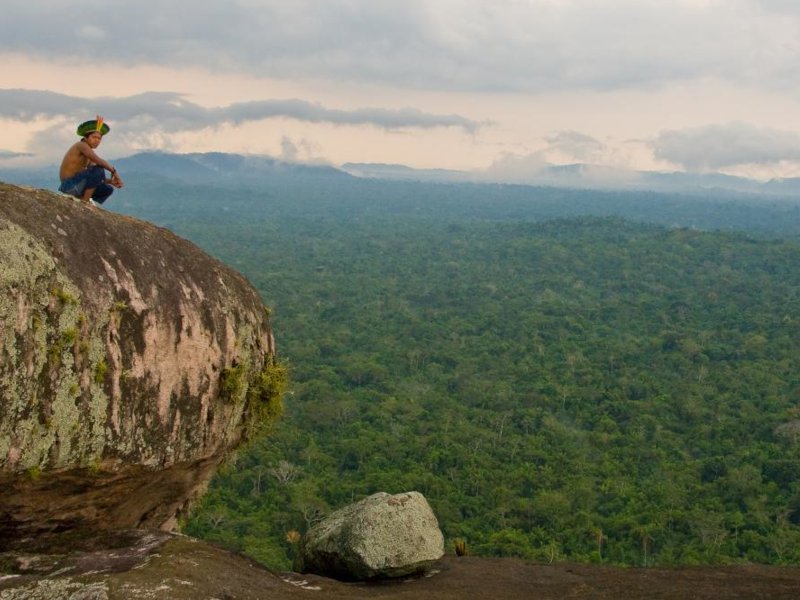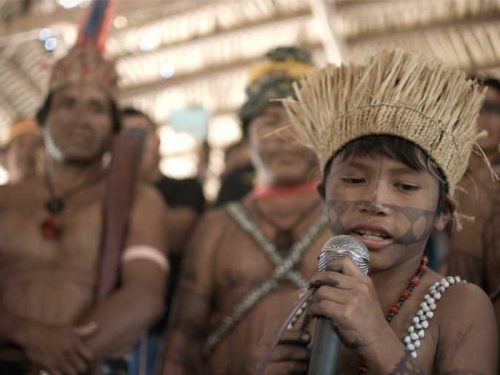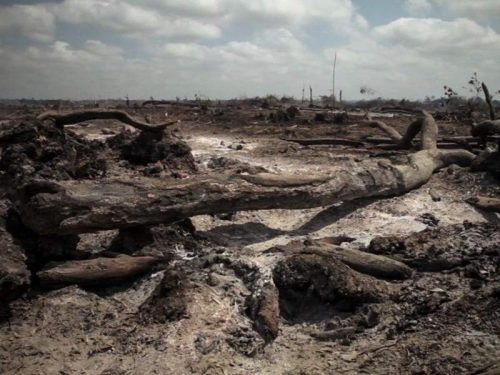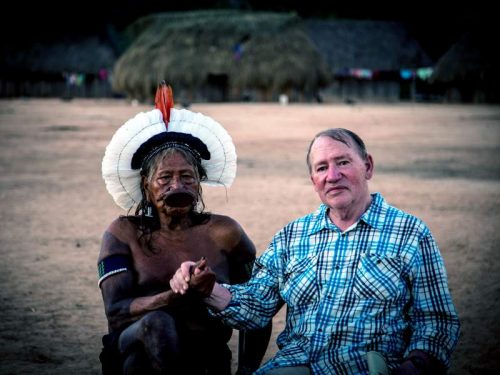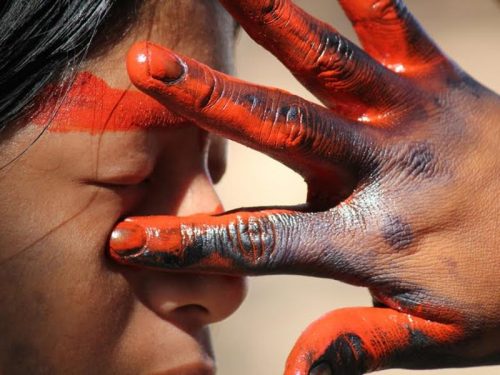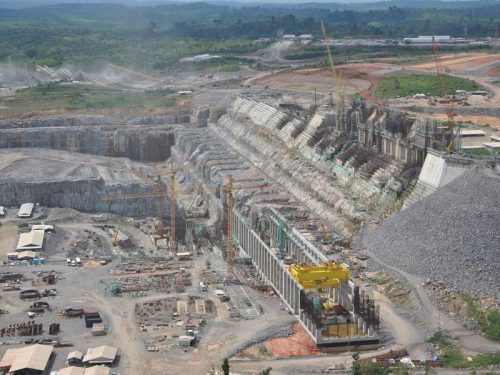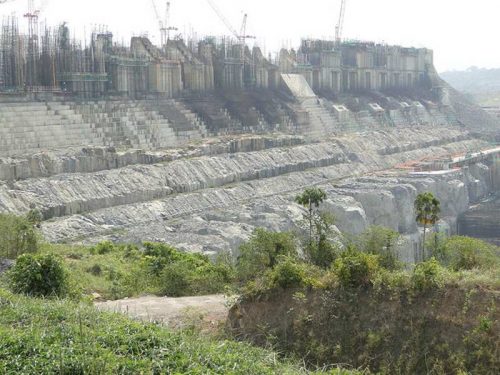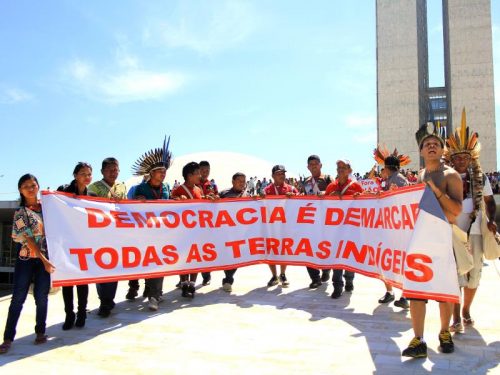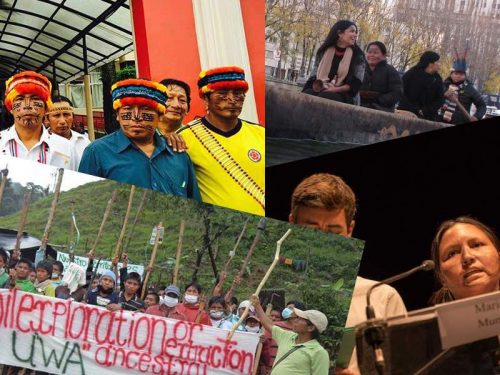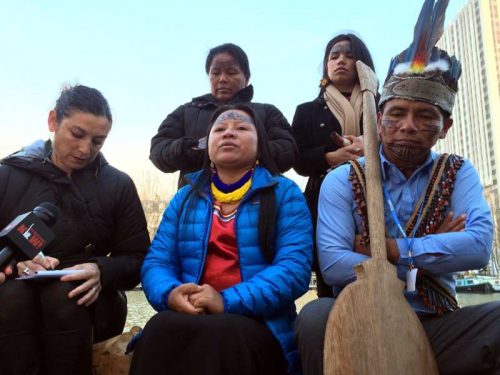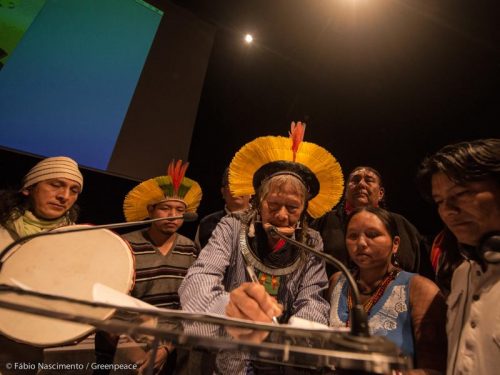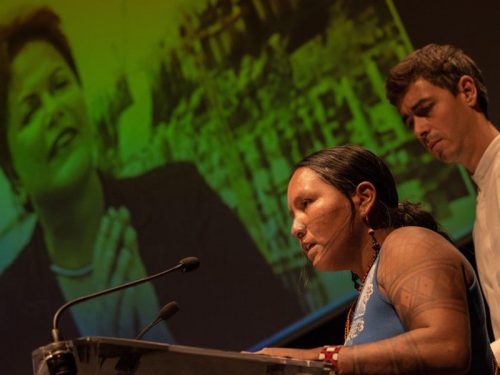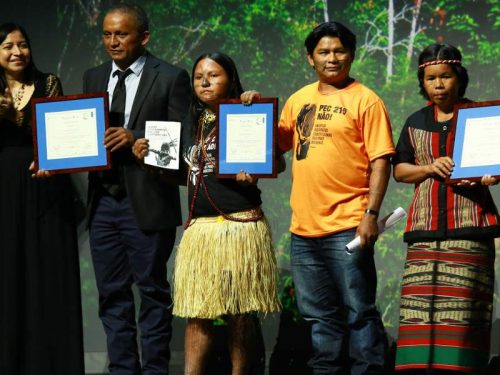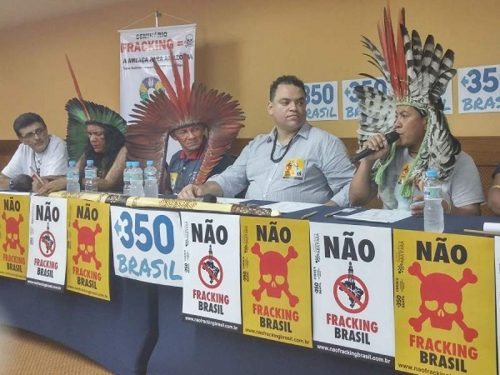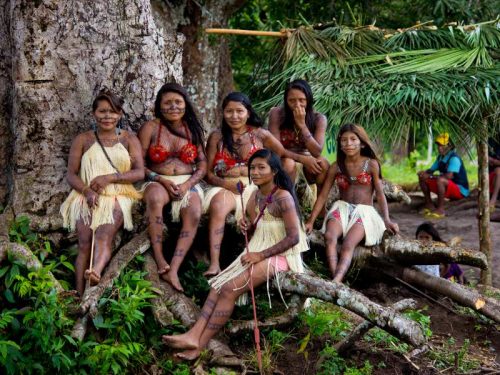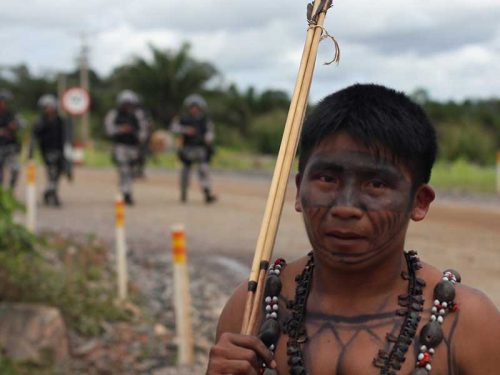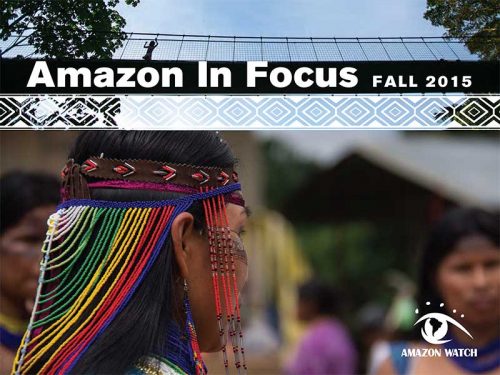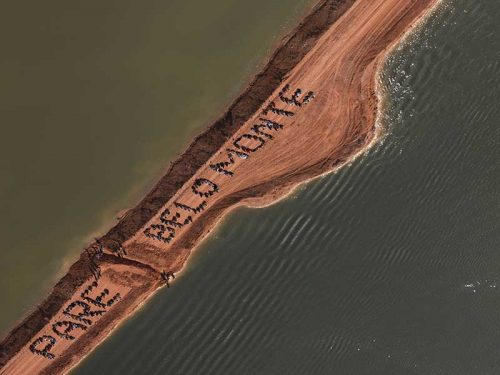In light of last week's damning evidence directly implicating Brazilian President Dilma Rousseff and her predecessor Lula da Silva in a kickback scheme, a driving force behind Brazil's dam-building boom has been laid bare: corruption.
Tapajos
Report from the Amazon: Altamira, a City Transformed by the Belo Monte Dam
The scale of this change, mind-boggling as it is, is not unusual in this part of the world. Over the last half century, Brazil’s economic frontier reached the region, bringing a huge influx of workers – waves of loggers, gold-panners, cattlemen, miners, road and dam builders.
Which Chinese Corporations Have Their Eyes on the Amazon?
The implosion of Brazilian businesses with the Lava Jato corruption operation, the devaluing of the Real currency, and the rise in credit rates in Brazil have created an opportunity for Chinese businesses to establish greater participation in the country. Taking advantage of this situation, the China Three Gorges enterprise is preparing to make an...
In Santarém More Than 500 People Debate Dams, but the Brazilian Government Doesn’t Send a Representative
So many people attended the hearing that in the beginning one group that couldn't manage to enter the public auditorium provoked a bit of a ruckus in response to the attempt to cancel or change the location of the hearing.
The High Price of Belo Monte and Modernization in the Life of the Muratu Indigenous Community
The most drastic change in Bel's life was the obliteration of her ancestral identity and the imposition of a new identity when she was compelled to transform from a fisherwoman into a farmer.
Amazon Watch is building on more than 25 years of radical and effective solidarity with Indigenous peoples across the Amazon Basin.
Munduruku Building New Alliances To Fight Tapajós Basin Dams in Amazon
"They want to end the history of the Munduruku, but we won't let them," chief Juarez Saw declared. After every pronouncement, his listeners responded with a resounding shout: "Sawé!" – both a salutation and a war cry.
Belo Monte: Burning Legal Timber Stokes the Fires of Brazil’s Illegal Lumber Market
The burning of trees and animal deaths is only the first stage of a vicious cycle that marks the relationship between Belo Monte and the surrounding forest. Authorized to devastate thousands of hectares, the plant should use the timber for its own purpose or donate it for external use. The entry of large volumes of timber into the local market...
Brazil Court Revokes Injunction Blocking Belo Monte Dam Operation
The ministry said a decision from the federal court in Brasilia lifted the earlier order blocking the beginning of power generation at Belo Monte, which had been planned for the coming weeks.
Honoring the Legacy of Terry Turner
Terry's incisive ethnographic work with the Kayapo people, and his longstanding advocacy on behalf of their culture, forests, and rivers, earned him unique respect and admiration from Kayapo leadership, who called him 'Wakampu'.
Belo Monte Dam Operations Delayed by Brazil Court Ruling on Indigenous People
"This case sets an important precedent for the defence of indigenous rights in the Amazon at a time when the government is set to repeat the Belo Monte disaster by building dozens of dams on the Tapajós River."
Brazil Court Suspends Amazon Hydrodam Licence on Native Demands
A Brazilian court has suspended the operating licence for the Belo Monte hydroelectric dam, one of the world's largest, just weeks before its owner, Norte Energia, planned to start electricity generation.
Hydropower Dams Threaten One-Third of the World’s Freshwater Fish
Brazil's massive Belo Monte dam, which is due to be completed this year, "may set a record for biodiversity loss" owing to its siting at a location with an exceptional number of endemic species.
In Brazil, 2016 Announces New Conflicts and Challenges for the Amazon
2015 could only be defined as a bad year for Brazil. Economic meltdown, political crisis, social adversity, and environmental destruction defined the last twelve months. Yet rather than striking out in new directions as 2015 drew to a close, the Brazilian government was doubled down on its failing socio-economic model, ushering in a new wave of...
Five Reasons To Be Hopeful for the Future of the Amazon
The Amazon rainforest can seem unimaginably vast. Similarly, the fight to defend it from the onslaught of industrial-scale threats like oil drilling, logging, and huge dams can appear overwhelming. But across the region, local indigenous peoples and our work to support them is making the difference and protecting the lands they have known for...
Solstice Reflections of Our Work at COP21 and Beyond
As I reflect on our recent work at COP21 in Paris on the Winter Solstice, I am very proud of what we achieved and filled with great hope for our work ahead. The Amazon Watch team did an incredible job of accompanying and supporting a twelve-person delegation of indigenous leaders, women and youth from the Kichwa community of Sarayaku in the...
The Human Side of the Climate Change Equation
While government officials inside COP21 conference rooms just outside Paris were reviewing the cost-benefit analyses of cutting down on emissions or debating the numerical semantics of the warming of the earth, the human side of climate change and environmental destruction took center stage just a few kilometers south at the Maison des Metallos on...
What the Paris Climate Agreement Means for Indigenous Rights and Hydroelectric Dams
The final agreement from the Paris climate talks has been the subject of much controversy regarding the language in the document pertaining to indigenous rights. Any semblance of a legally binding measure pertaining to these rights was omitted from the final agreement that was signed by the governments of 190 countries. The agreement concluded a...
"Where Our Government Kills, We Cultivate Life"
At the closure of this year's critical COP21 summit in Paris, the most inspirational stories do not stem from official negotiations. They emanate from the heroic efforts of global indigenous movements, bringing a message of resilience and defiance from the front lines of climate change.
Communities from Latin America Among Those Honoured with Equator Prize 2015
"Our struggle is large and dangerous, but we know we shall win. I've been to Belo Monte so I know what these dams represent: if they are built on the Tapajós they will flood our lands, and destroy our fish and hunting. We've come to put an end to this madness," Munduruku Chief Suberanino Saw told Amazon Watch in 2104.
Brazilian Indigenous Movement Receives Prominent UN Environmental Prize at COP21 in Paris
Paris, France – Indigenous leaders Maria Leusa Kaba Munduruku and Rozeninho Saw Munduruku will receive today the prestigious UNDP Equator Prize at an awards ceremony at COP 21, in recognition of the Munduruku people's courageous efforts to protect their territories in the Brazilian Amazon from threats posed by planned hydroelectric dams, as well...
Global Coalition Says Mega-dams Should Be Kept Out of Climate Initiatives
A coalition of more than three hundred civil society organisations from 53 countries has launched a manifesto calling on government leaders and financiers at the Paris climate talks to keep large hydropower projects out of climate initiatives.
10 Reasons Why Climate Initiatives Should Not Include Large Hydropower Projects
Support from climate initiatives is one of the reasons why more than 3,700 hydropower dams are currently under construction and in the pipeline. Yet large hydropower projects are a false solution to climate change.
Amazon Fracking Scheme Encounters Stiff Resistance in Brazil
In an act of defiance targeting the Brazilian Oil and Gas Agency, Brazilian indigenous leaders and activists interrupted a major auction of new fracking concessions set to spread across the Amazon rainforest.
The Unseen Truth: Mega-dams and Human Rights
For the people who once lived within and relied upon the forest for survival, industrial development such as mega-dam construction greatly impacts the natural balance, automatically altering their right to live in a healthy environment. That's why talking about human rights abuses in the Amazon requires the acknowledgement that environmental...
How Hydroelectric Power May Undermine Brazil's Pledge to Slash Greenhouse Gases
VICE News | "Brazil is putting these dams into the energy mix, without so much as looking at their carbon footprints," said Brent Millikin, the Brazil-based Amazon program director for International Rivers, a US environmental group. "The dams are a disaster every way you look at it."
Greenpeace Report Slams Brazil Plan for Tapajos Dam in Amazon
Reuters | Greenpeace called on Brazilian authorities on Tuesday to reject an environmental assessment for a hydroelectric dam on the Tapajos River in the Amazon because it was a "marketing tool" that disregarded the indigenous people living along its banks.
Brazilian Indigenous Resistance Movement Wins Prominent UN Environmental Prize
2015 Equator Prize recognizes Munduruku efforts to defend the Tapajós River from new wave of Amazon mega-dams
New York, NY – Last Monday, the Munduruku indigenous people's resistance movement Ipereg Ayu was awarded the 2015 United Nations Development Program's (UNDP) Equator Prize. The announcement recognizes the Munduruku's tireless and innovative struggle to preserve the Amazon's Tapajós River and its vast forests from destruction.
Amazon in Focus 2015
The past year saw many important victories for our partners, yet the next several years will be critical to advancing rainforest protection, indigenous rights, and solutions to climate change such as clean, renewable energy.
Victory on the Xingu: Belo Monte Denied Operational License
Recently we asked the international community to take action by urging the Brazilian environmental agency IBAMA to reject the dam-building consortium Norte Energia's request for Belo Monte's operational license. In a stunning victory for social and environmental accountability – and thanks in part to the many thousands of you that took...


